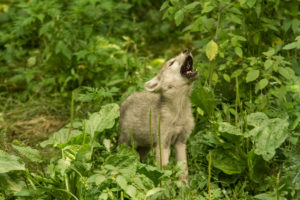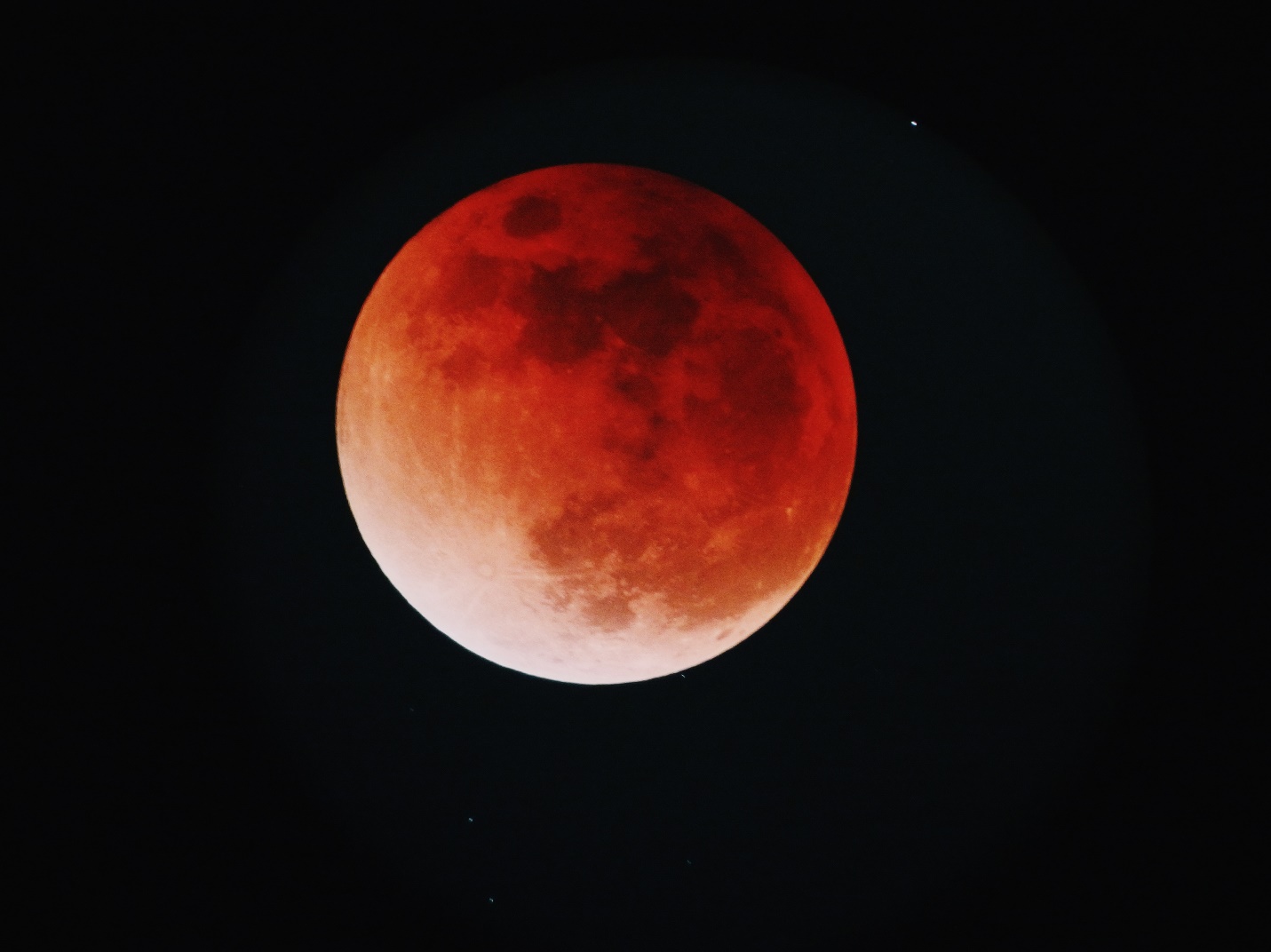From ancient times, Indigenous peoples in North America called the first full moon after the winter solstice the Wolf Moon. This was often the coldest, darkest month of the year, when hungry wolves could be heard howling outside villages.
The sky will provide a backdrop for some extra drama when 2019’s Wolf Moon takes place the evening of January 20 – 21. On that night the full moon will pass its closest to earth making it appear larger and brighter than normal. That adds the super to Wolf Moon.
And, depending where you are, at some point that night the earth will move between the sun and the super Wolf Moon creating a total eclipse. The earth’s shadow makes the moon appear red, hence the term blood.
A super blood wolf moon is relatively rare, occurring approximately every three years. But how do wolves respond to this lunar event?

Wolves howl, hunt and travel at any time but are most active around dawn and dusk, as well as throughout the night. And whether they’re sitting, standing or lying down, they lift their snouts to howl. But, rather than focusing on the moon, some believe they’re simply taking advantage of the extra light it provides.
“I know from sleeping near the Sawtooth Pack for eleven years that wolves do howl more during a full moon,” Jeremy Heft writes in the summer 2009 Sawtooth Legacy Quarterly. A wildlife biologist, Heft’s worked at the Wolf Education and Research Center in Winchester, Idaho, since 1998. “They tend to be more active then because it’s easier to see prey and hunt.”
In the 1970s, wolf researcher Paul Paquet observed unusual behaviour in a pack during a solar eclipse. The wolves were actively wandering around an estuary on the BC coast when the moon passed between the earth and the sun. As the light faded, the wolves gathered together along the shoreline and gazed in the direction the bright sun had been. They only resumed their normal routine when the sun began to reappear.
So it’s hard to say how wolves will react to a super blood wolf moon. My guess is they may howl earlier in the night when the moon is brightest but stop to gaze upwards during the dimming of light and change of colour during the blood phase.
Super blood wolf moon photo by Yu Kato (Unsplash)

